Opening up in her most candid and revealing interview in years, Megan Fox speaks to GLAMOUR’s Emily Maddick about Sєxism, being a Sєx symbol, her psychological breakdown, the pressures of parenting, her feminist revival and rejection – and pᴀssionate blood-drinking rituals with her fiancé, Machine Gun Kelly…
Megan Fox is having a moment. This much we all know. Every red carpet she steps on, every Kardashian she steps out with and every outfit she wears is analysed, idolised, or meme-ified, generating headlines on a near-daily basis. Despite not having an account herself, she’s celebrated as a goddess on TikTok for her wit, style and unapologetic honesty. And then, of course, there’s her equally unapologetic, PDA-packing, internet-breaking romance and exceedingly extra engagement – complete with claims of mutual blood-drinking – with rapper and actor Machine Gun Kelly.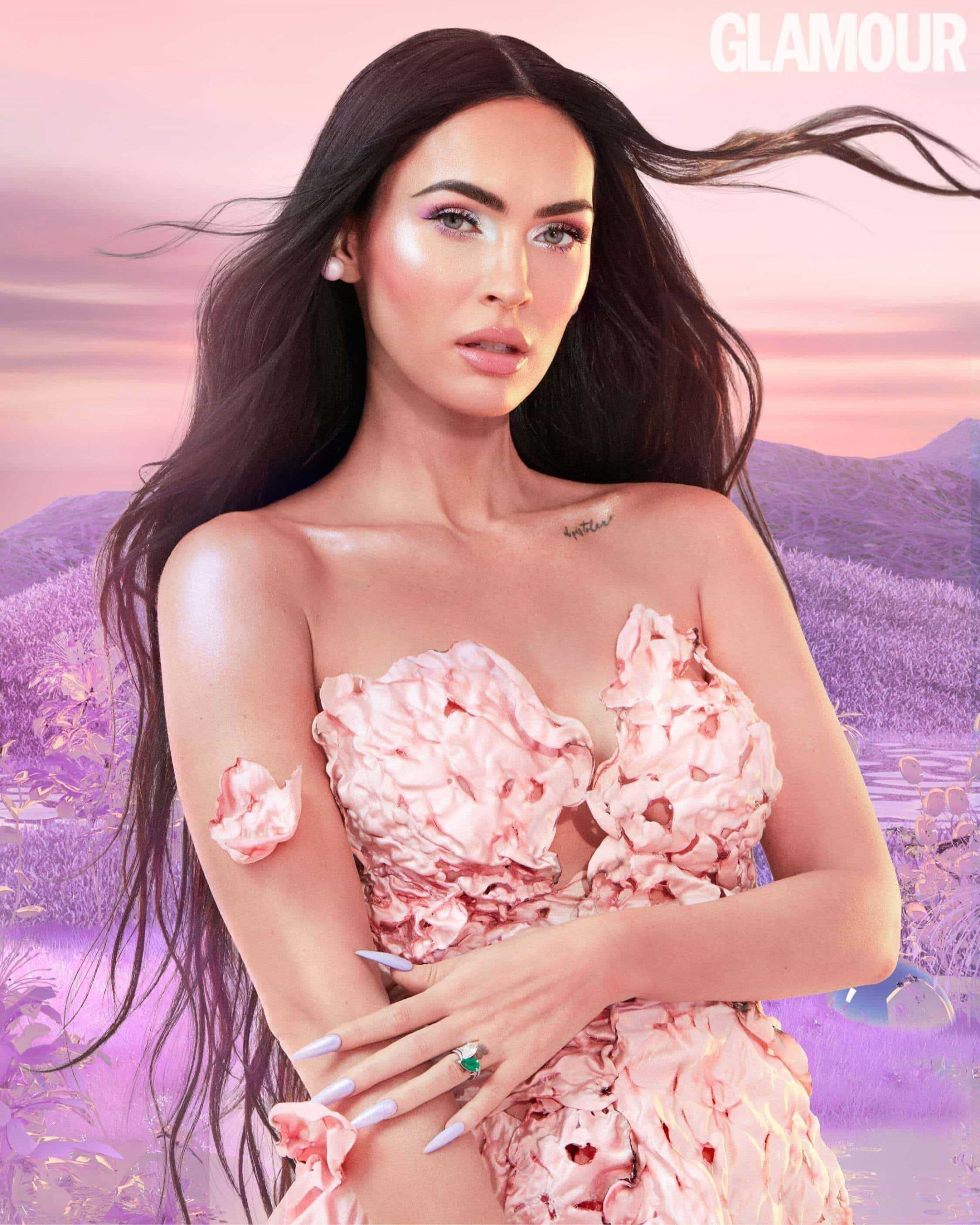
But Megan has not always been as celebrated, appreciated or – crucially – understood.
Her rise to fame in the early Noughties saw her emerge as an almost cartoon-like Sєx symbol whose pin-up, all-American good looks garnered her a reputation for some roles that seemed solely to serve the male gaze. And the public and the media treated her accordingly. I, too, was guilty of underestimating Megan Fox in the past, buying into the Sєx-symbol narrative and not taking her seriously enough. But no longer.
Because, as I learn, Megan has always been outspoken – radically so – intelligent, boundary-breaking and feminist. And in 2009, the same year she filmed Diablo Cody’s cult horror movie, Jennifer’s Body, she spoke out in the media about being relentlessly Sєxualised and enduring what she called some “genuinely harrowing experiences in a ruthlessly misogynistic industry.”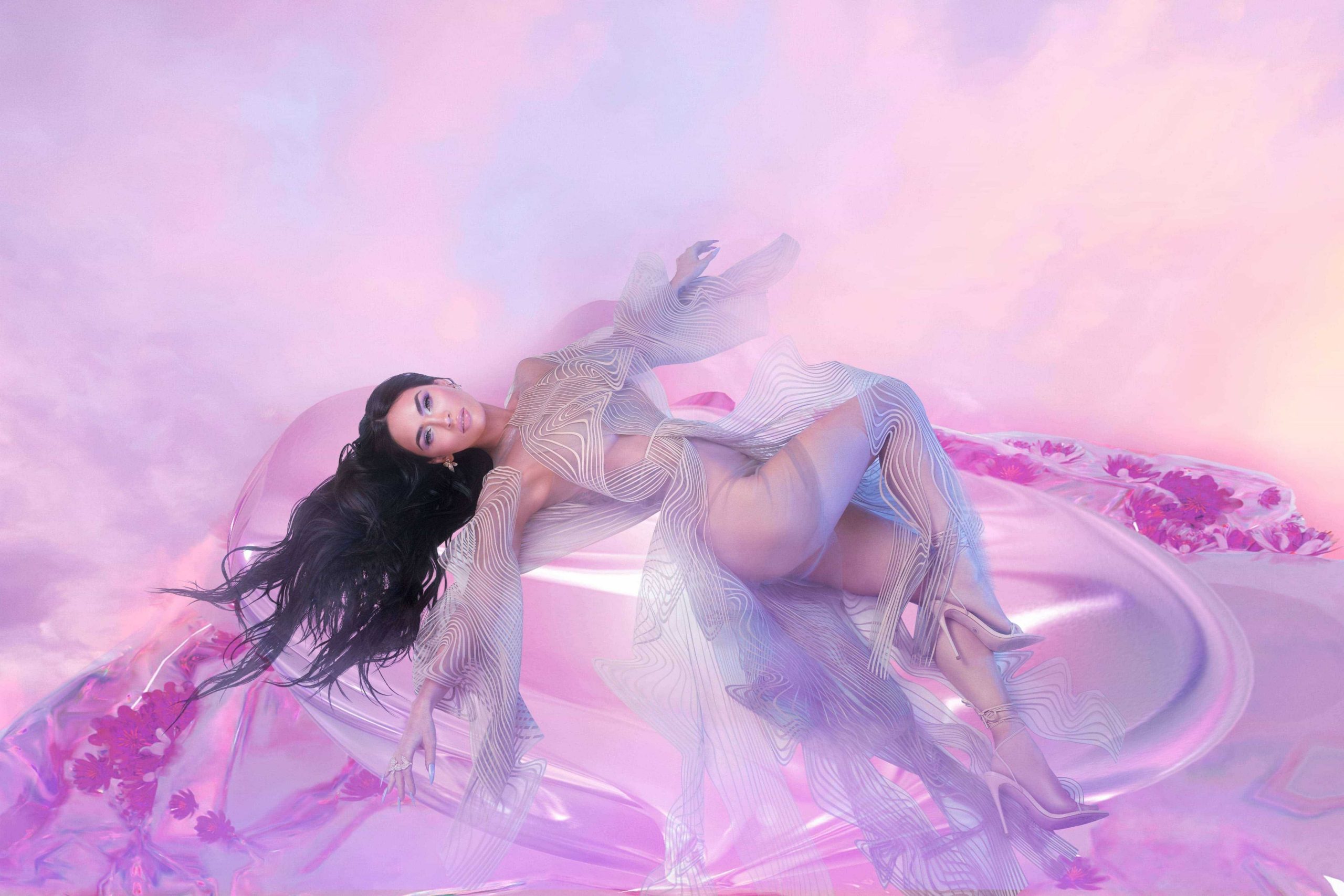
“I think that I was ahead of the #MeToo movement by almost a decade,” she tells me today. “I was always speaking out against some of the abusive, misogynistic, patriarchal things that were going on in Hollywood back in 2008 and 2009, way before people were ready to embrace that or tolerate it. And I actually got ridiculed for doing it. I think people just have had time to review that, in retrospect.”
One of her first experiences in Hollywood was a small part in Bad Boys II, released in 2003, where she had to dance in a ʙικιɴι, cowboy hat and high heels under a waterfall. She was just 15.
Footage from an excruciating 2009 interview with Jimmy Kimmel – which has come to encapsulate the treatment Megan endured – about it recently resurfaced and went viral.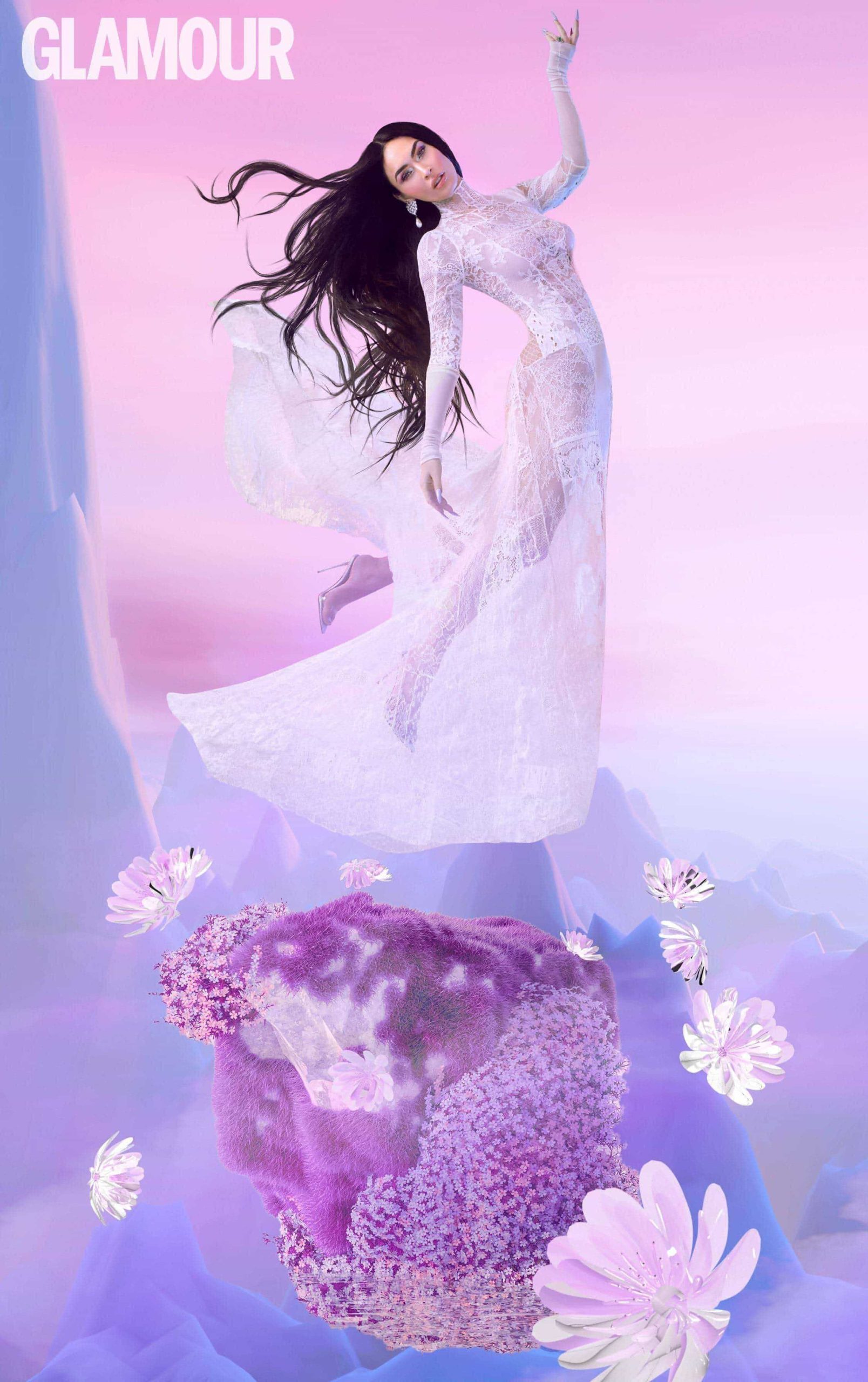
In it, Megan relays that she was too young to appear in a bar scene, so the ‘high-heel waterfall’ scenario was the director Michael Bay’s solution, to which Kimmel laughs and says, “Perfectly wholesome.” Megan continues, “At 15, I was in tenth grade. So that’s a sort of a microcosm of how Bay’s mind works.” Kimmel replies to canned studio laughter: “Yeah, well, that’s really a microcosm of how all our minds work, but some of us have the decency to repress those thoughts and pretend that they don’t exist.” It makes for uncomfortable viewing now.
“I WAS AHEAD OF THE #METOO MOVEMENT BY ALMOST A DECADE. I WAS SPEAKING OUT AGAINST SOME OF THE ABUSIVE, MISOGYNISTIC, PATRIARCHAL THINGS THAT WERE GOING ON IN HOLLYWOOD BACK IN 2008 AND 2009.”
When she worked with the director again on Transformers, she claimed he demanded she gain 10lb for the part and she called him a “nightmare to work for.” In response, an open letter written by three anonymous Transformers crew members was then widely reported, in which they described Megan as “Ms Sourpants,” branded her unprofessional and a “bitch,” and suggested she should be a pornstar in the future. It gave her a reputation as being difficult to work with.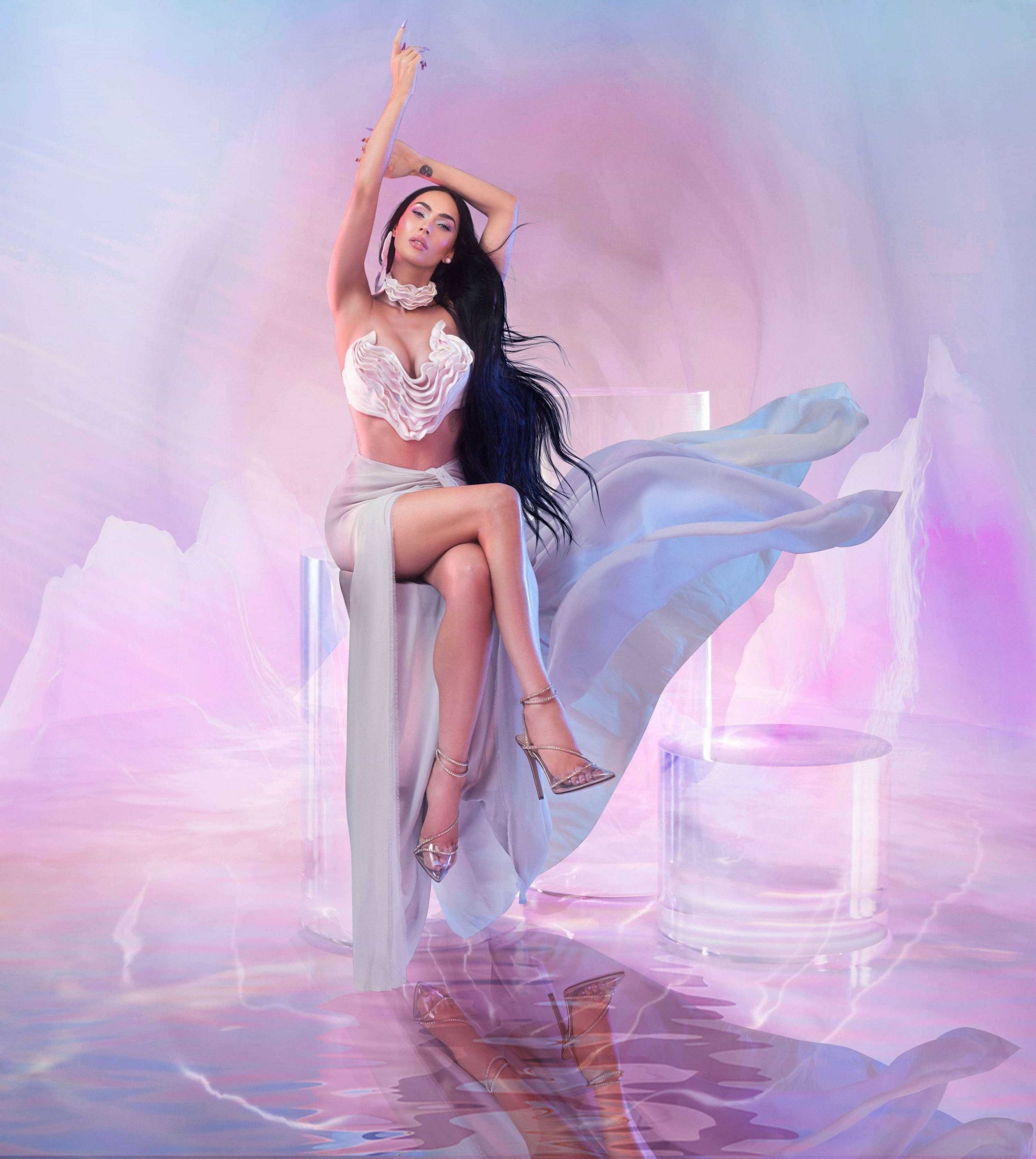
While Megan has since reconciled with Bay – and worked with him again in the Teenage Mutant Ninja Turtles franchise – she’s continued to speak out about her experiences of misogyny in general, before suffering a “psychological breakdown” and retreating from the limelight due to the wide-scale objectification from the media, industry and the internet.
“I wasn’t allowed to be a human, because I was a topic of conversation and gossip and punch lines,” she tells me.
While she still accepted a few roles, her public appearances dried up, “I was essentially in hiding for several years of my life” she says. But now she’s reemerged in a post-#MeToo landscape, her status and career revised and reevaluated, and heralded as a feminist icon – although, as she tells me, not by everybody.
And this – I believe – is the most interesting and important reason Megan Fox is having a moment right now.
We meet in a pH๏τography studio in Burbank, Los Angeles, on a sunny spring Sunday on the morning of the GLAMOUR cover shoot. Megan drives herself to set (she doesn’t like sitting in the back of cars) in her custom Range Rover, having spent the first half of the morning tending to weekend activities with her three children, Noah, nine, Bodhi, eight, and Journey, five, who she shares with her ex-husband, OG Beverly Hills 90210 actor, Brian Austin Green.
She is a peтιтe 5ft 4in and is dressed entirely in pink, from a baseball cap to tracksuit to Louis Vuitton handbag, arriving with a small entourage including her close friend, the Hollywood super-stylist, Maeve Reilly (who also works with Hailey Bieber and the Kardashians), who styled this fantastical cover shoot.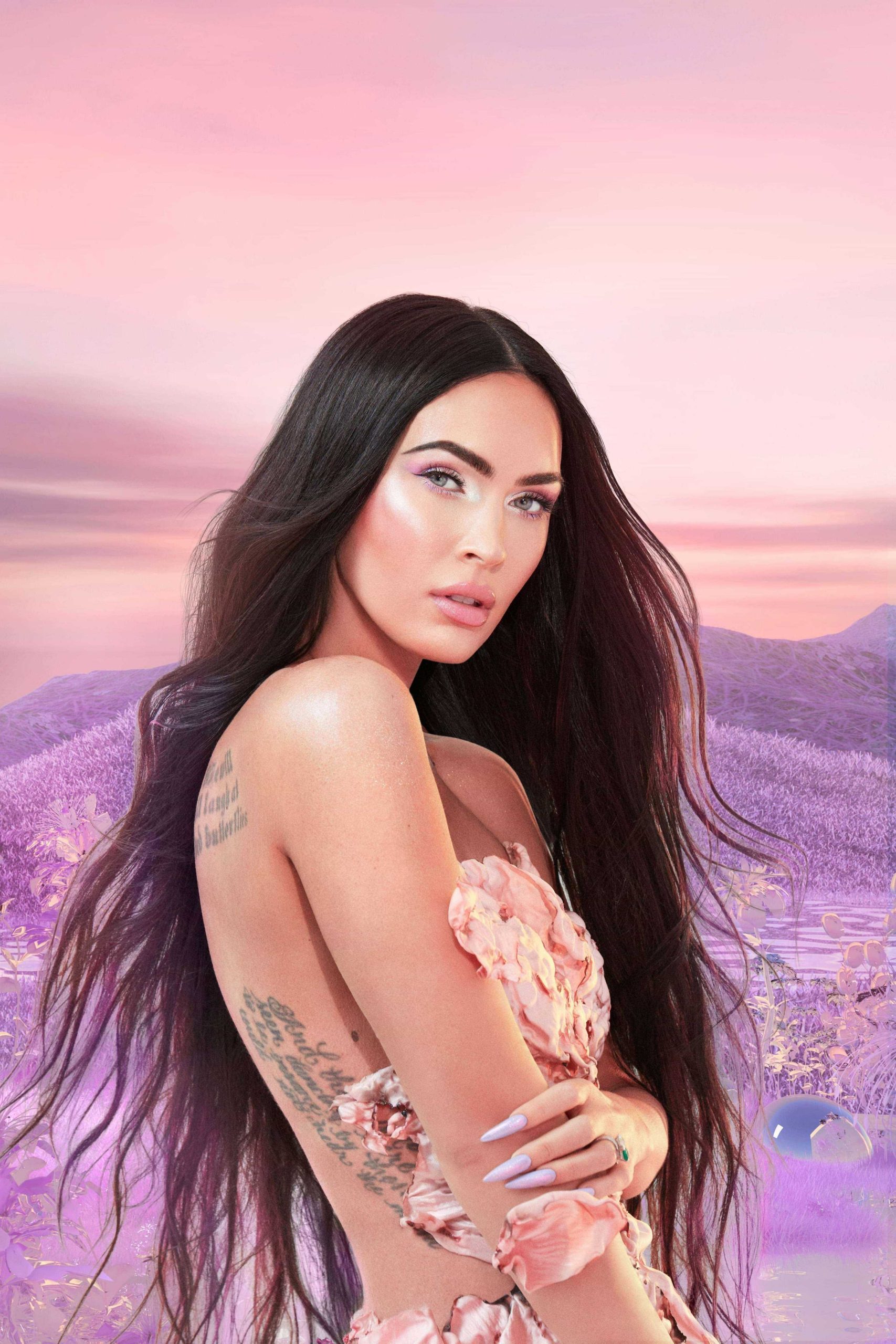
From the off, Megan is friendly, easy-going and fun, making everyone feel at ease as she orders gluten-free toast with jam for breakfast. During the course of our hour-long conversation, she is warm and delivers unfettered honesty, which at one point leads to her breaking down in tears as she opens up about a particularly sensitive issue surrounding her eldest child, Noah. The emotion is raw and she leaves everyone in the room moved (more on this later.)
As she acknowledges at the end of the interview, hers is undoubtedly one of the most ‘unfiltered’ of all GLAMOUR’s Unfiltered interviews to date, joking afterwards, “You might need to actually filter it!”
I start by asking her why she thinks her career – which has included recent thrillers Midnight In The Switchgrᴀss (where she met Machine Gun Kelly), Till Death and Johnny & Clyde, dark comedies Big Gold Brick and Good Mourning (written and directed by her fiancé) and forthcoming action film The Expendables 4 – is having a renaissance right now?
“I think the first time around, when I was dealing with astronomical levels of fame, that in itself is a type of trauma… And if you don’t have a big family or a big support system, it’s easy to become very overwhelmed or get lost in that,” she says. “And if you’re delicate at all, it’s a hard thing to go through. So, I shut down a lot and retreated from everything… I’m so much better equipped now to deal with it and to experience it in a way where I can actually enjoy some of it and not be so self-conscious and afraid all the time.”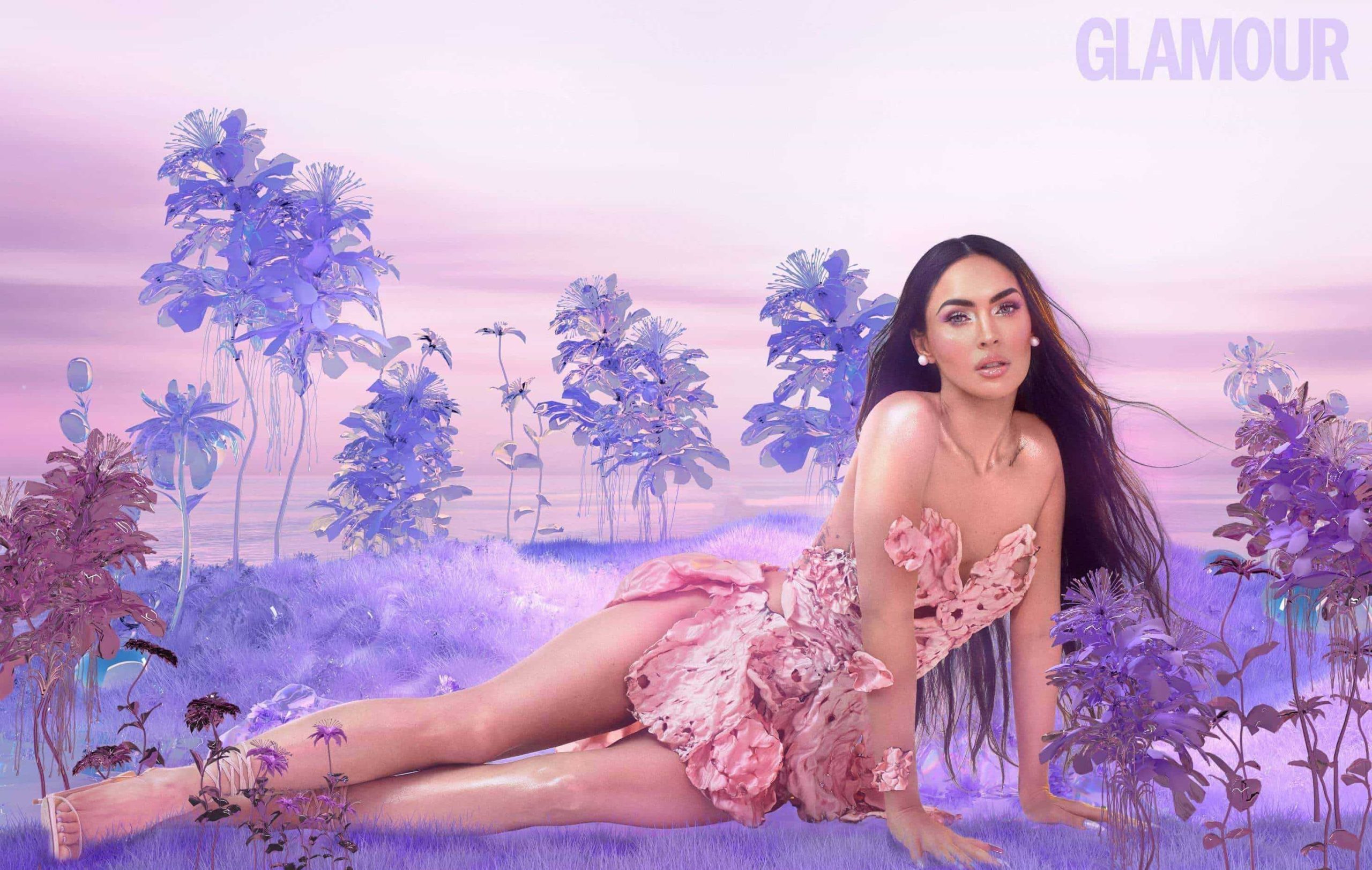
Born in Oak Ridge, Tennessee, Megan Denise Fox was raised with her elder sister, Kristi, by her religious mother and stepfather as a Pentecostal Christian before attending a Catholic High school. She started modelling at the age of 13, winning local modelling contests, before landing her first TV show, Holiday In The Sun in 2001 at the age of 15, starring alongside Mary-Kate and Ashley Olsen. This was followed by her breakout feature film, Confessions Of A Teenage Drama Queen in 2004 with Lindsay Lohan. Then came a flurry of roles, fame, attention and criticism, before she retreated saying she wanted to do something “legitimate.”
While her career didn’t entirely dry up in the past decade – most notably she had a recurring role on the TV show New Girl alongside Zooey Deschanel from 2016 to 2017 – she deliberately kept herself out of public life, focusing on her family and also navigating the end of her on/off, 15-year relationship with Brian Austin Green, whom she split from in 2019.
I ask her about that difficult period and subsequent breakdown; how she coped with the endless gossip, ridicule and most pertinently, Sєxual objectification.
“I don’t know if the psychological breakdown was strictly related to being objectified, it was more related to just being dehumanised and criticised and judged constantly,” she reflects.
“When so many people around the world are thinking about you or have negative thoughts or intentions towards you, that energy permeates and penetrates me. I don’t have boundaries and walls for that. I’m still human. I am still fragile in that way, I can feel. And that was part of the struggle.”
IT’S VERY BIZARRE TO GET JUDGED FOR, LIKE, ‘WHAT IF I AM IN A BDSM RELATIONSHIP? AND I’M LIKE, YES – IS THAT OK WITH YOU? BECAUSE THAT’S WHAT I WANT.
“I don’t think people understand that we’ve come to this place where we grasp, ‘Bullying is bad. Children shouldn’t be bullied. It leads to self-hate. And eventually in some cases leads to suicide.’ But then when it comes to a celebrity, all of that is thrown out the window and people spend so much of their time bullying celebrities.”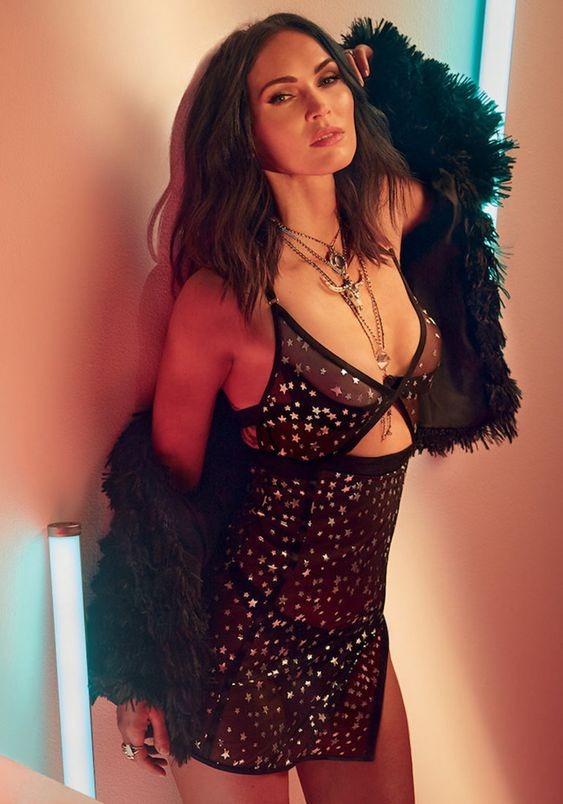
She shares her opinion of social media’s role in this. “I have social media, but I don’t personally use it. I have somebody who posts for me and I decide what I want to say,” she tells me, adding, “but I think it’s sinister. I think it’s evil.”
Megan identifies as a feminist but has also had a complicated relationship with feminism as she feels she was – and still is – rejected by some sectors of the community. Despite starring in what is now being viewed as a cult classic with feminist themes, Jennifer’s Body (cheerleader gets possessed with the devil and goes on a rampage eating all the teenage boys who try to sleep with her) was initially panned; the film’s central themes of female empowerment were ignored and Megan’s performance as Jennifer misunderstood.
“I’ve never felt completely included in the feminist community and I do still think that it’s tricky in an awful way,” she tells me. “Whatever I provoke in them is not something that they can digest very well. And so that comes back on me, as they reject me for those reasons. And I just don’t think that I was a very sympathetic victim.”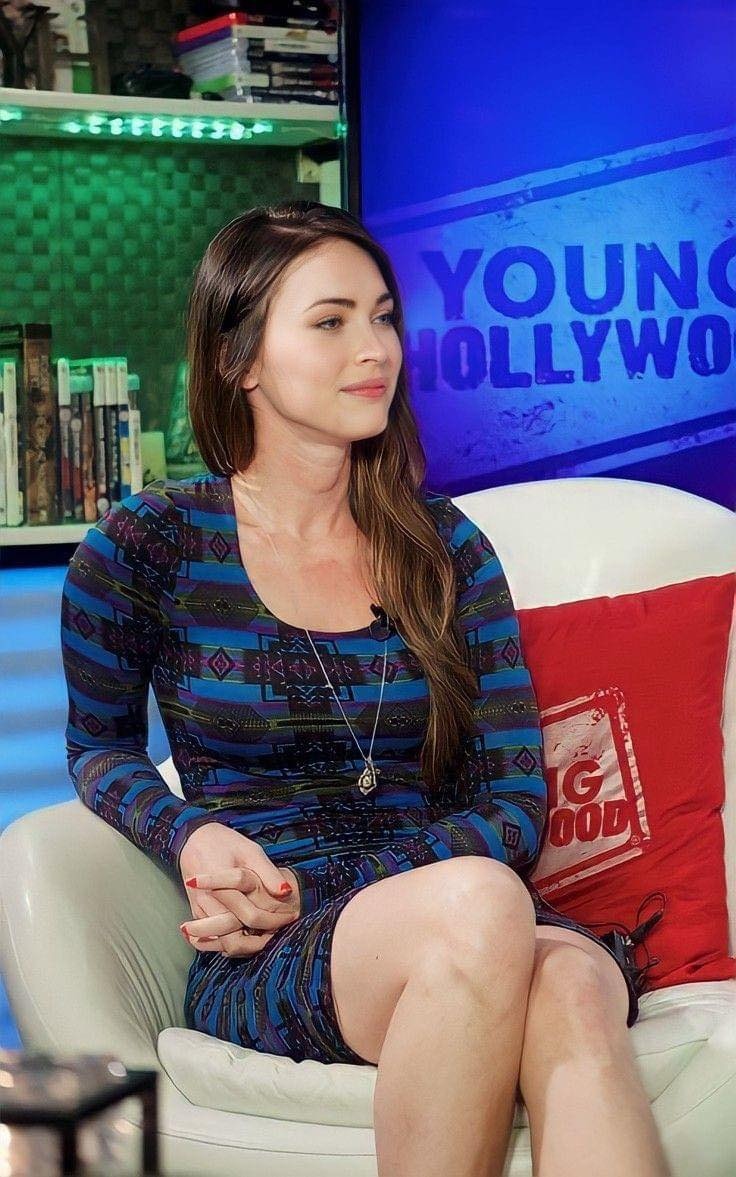
She’s referring to her ability to be playful with her own image as a Sєx symbol and her penchant for being outspoken. “Me just being free and having fun with how I am and my personality is very provocative for people,” she says. “I trigger the people who I trigger. That is something that I, as a famous person, do. That is my purpose in a lot of ways,” she states.
Her early career was littered with soundbites, such as, “I have the libido of a 15-year-old boy”, “Men are terrified of vaginas”, “I don’t have a special vagina” and “actors are either narcissistic douchebags or raging alcoholics.”
Does she ever regret anything she’s said?
“The regret I have is that my personality is so lost on people, my sense of humour is lost. My intelligence is not acknowledged. And so that is a regret. Sometimes I feel like I just waste my energy, giving myself to people who don’t understand and won’t appreciate [me], but I’ve never had anything where I look back now and think, ‘I really shouldn’t have said that’ Because even the terrible things caused me to do so much work on myself, that I grew exponentially, because of it.”
And while she acknowledges that there has been a revision in atтιтude towards her since the #MeToo movement of 2017, she claims that in many ways she still battles with rejection.